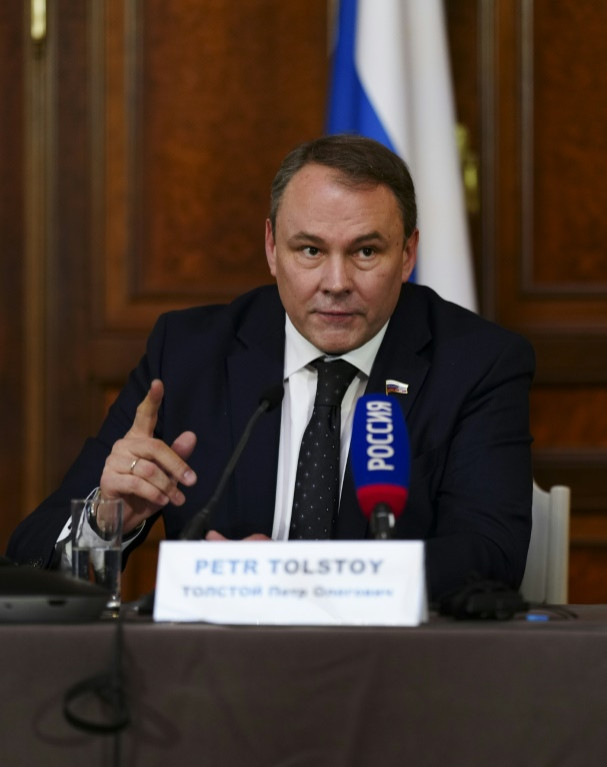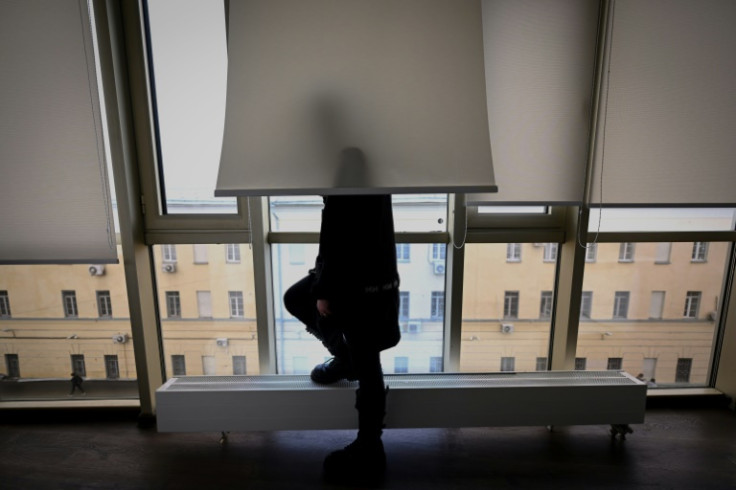Russian Transgender People 'In Total Despair' Over New Bill

"Nikolai", a 21-year-old transgender man, says he does not know how he can keep living in Russia after lawmakers moved to outlaw gender transitions.
The bill, which passed its second reading on Thursday, is part of an ultra-conservative, anti-Western drive that has intensified since the start of Russia's military campaign in Ukraine.
"I feel total despair," said Nikolai -- not his real name -- who spoke on condition that his identity not be revealed.
"If this law enters into force, even hormone therapy will be banned," he said.
The new legislation forbids transition surgery, with the exception of children with congenital defects, and outlaws people changing the registration of their gender in official documents.
Following the liberalisation of Russian society in the 1990s after the fall of the Soviet Union, some gender transition procedures became possible in Russia.
But trans people are still stigmatised.
Nikolai, who was assigned female at birth, said he attempted suicide several times before realising his trans identity.
"My psychological state has improved after the start of my hormone therapy," said Nikolai.
"I have accepted myself as a transgender person and I have started socialising," he said, adding that he had recovered the will to live.
Nikolai said that he had begun the procedure to change his sex in official documents, but it has become a race against time as it will no longer be possible once the law comes into force.
Since the start of its offensive in Ukraine, Russia has adopted a series of conservative measures, particularly against the LGBTQ community, aiming to clamp down on behaviour authorities consider deviant and Western-influenced.
"We are preserving Russia and its cultural values, its traditional foundations," said Pyotr Tolstoy, the deputy speaker of parliament's lower house, and one of the authors of the bill.
"I really want our people who are now defending Russia's honour with their lives (in Ukraine) to come back and see how this country has changed," he said.
But Yan Dvorkin, a 32-year-old psychologist who heads up a Russian NGO helping transgender people called "Centre T", is concerned about a possible rise in suicides when the legislation is enacted.
It will be "difficult for people to hear that the state thinks of them as 'enemies of the people', takes away their rights, ...and puts them beyond the law," he said.
Dvorkin called the bill, which has to be signed off by President Vladimir Putin, a "fascist" measure that would "deprive people of medical assistance".
The ban on hormone therapy risks "creating a black market in hormones" and their use without medical assistance would be a serious risk, he said.
Dvorkin, himself a transgender man, said his foster child, a boy with disabilities, was taken away by social services this year.
The reason given was that he received a fine in May for "propagating non-traditional sexual relations" -- a law that has been in force since 2013 and which rights groups say is a way of cracking down on the LGBTQ community.
In December last year, lawmakers expanded the law and it now applies to LGBTQ "propaganda" to anyone, not just children.
According to the new legislation, people who have already changed their gender will not be able to adopt children or act as guardians.
The third reading of the bill is expected to take place on Friday.
In a new sign of pressure on the beleaguered community, Russia's FSB security service said Thursday it had arrested a transgender rights activist accused of "high treason" for supporting Ukraine.
Around 3,000 kilometres (1,900 miles) from Moscow in the Altai mountains region, Yulia Alyoshina is the only known transgender person in Russia who has dared to launch into politics.
"The authorities have chosen to repress this small group, which is already discriminated against and stigmatised," the 33-year-old lawyer told AFP in a phone interview.
Between 2016 and 2022, 2,990 Russians legally changed gender, out of a population of 146 million people, the interior ministry said.
Alyoshina said that homophobia and transphobia are getting worse in Russia.
Recently, she received an anonymous message telling her that she should be "shot, according to the laws of war".
The activist also recently quit the leadership of the local branch of the party Civic Initiative, after the LGBTQ "propaganda" law was expanded.
Alyoshina had wanted to run for regional governor of Altai in September but she pulled out of the race this month.
Local elected officials, who had supported her, changed their minds after the draft law on trans people came out.
"But I'm keeping my spirits up," she told AFP. "I am sure that one day Russia will be free".


© Copyright AFP 2024. All rights reserved.







